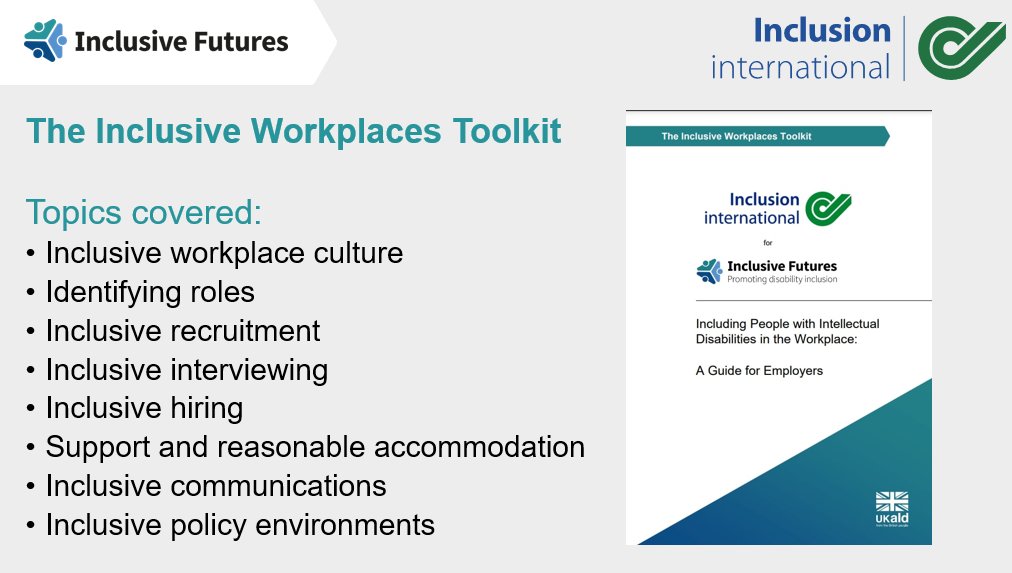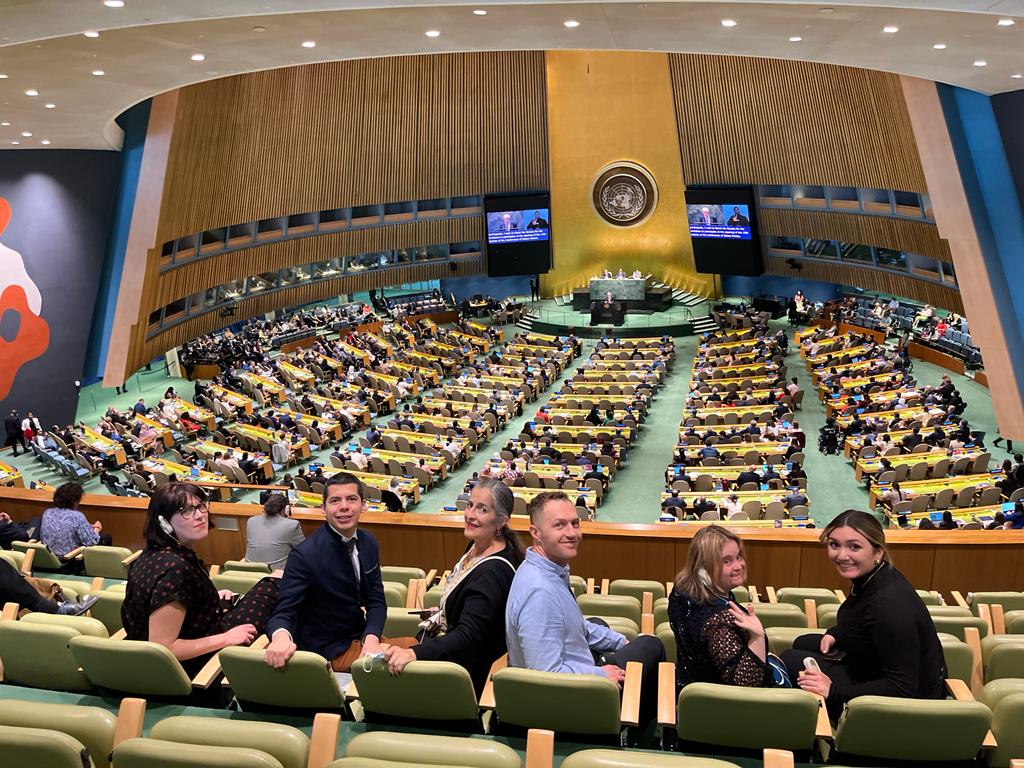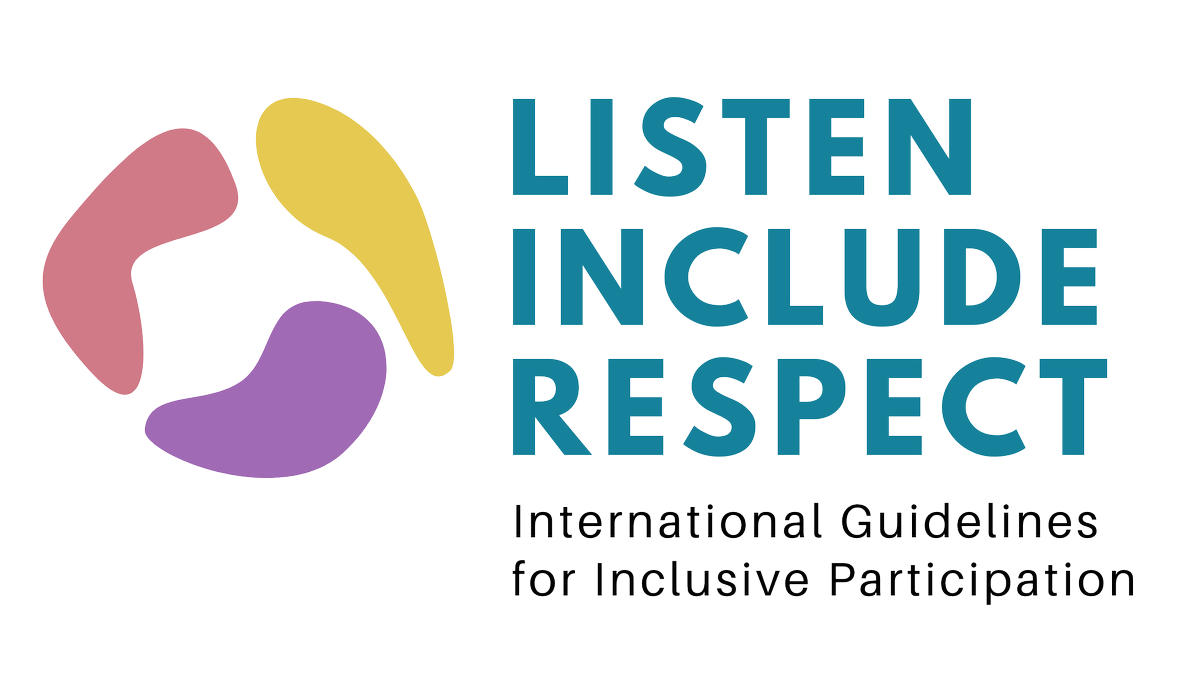
Thank you to @iddcconsortium for the opportunity to participate in the #COSP15 Expo on #EconomicEmpowerment and share our #InclusiveWorkplaces Toolkit developed through #InclusiveFutures!
Hear our key messages from the event in the thread below:
👇
Hear our key messages from the event in the thread below:
👇
https://twitter.com/iddcconsortium/status/1537774517862408192

People with intellectual #disabilities are one of the groups most excluded from the labour market - employers tell us that they don’t understand "how" to include people with intellectual disabilities in their workplaces. 

For us, this is about "real jobs for real pay" - people with intellectual disabilities in jobs they choose themselves, in workplaces where people with and without disabilities work together, where they are paid fairly and equally for their work, and with good support. 

To understand what the challenges were for #RealJobsForRealPay, through the #InclusiveFutures project we consulted with:
👩💼 27 employers
👨👩👧👦45 families of people with intellectual disabilities
👩 54 people with intellectual disabilities
👩💼 27 employers
👨👩👧👦45 families of people with intellectual disabilities
👩 54 people with intellectual disabilities

Families told us that they are the primary supporters for people with intellectual disabilities, but most #InclusiveEmployment programming leaves them out. Engaging families is essential for inclusive employment & livelihoods work to include people with intellectual disabilities!
We talked to 27 #employers in Kenya, Uganda, Nigeria, and Bangladesh through #InclusiveFutures - they told us that they didn't understand how to include people with disabilities, and that they needed tools and resources to become more inclusive. 

We created the #InclusiveWorkplaces Toolkit to help employers understand what action to take to make their workplace more inclusive.
We took the advice self-advocates and families told us about what good workplace inclusion looks like, and turned it into guidance for #employers.
We took the advice self-advocates and families told us about what good workplace inclusion looks like, and turned it into guidance for #employers.

Each section of the toolkit gives #employers:
💼Guiding questions to help find their starting point
💼Actionable steps for workplace inclusion
💼Templates and resources like plain language contracts and job descriptions to use in their workplace
💼Guiding questions to help find their starting point
💼Actionable steps for workplace inclusion
💼Templates and resources like plain language contracts and job descriptions to use in their workplace

The #InclusiveWorkplaces toolkit is now live and available to download on Inclusion International's website!
👇
inclusion-international.org/resource/inclu…
👇
inclusion-international.org/resource/inclu…

The #InclusiveWorkplaces Toolkit makes it clear to #employers that including people with intellectual disabilities is much easier and much less expensive than they think - most action points in the toolkit can be implemented for free! 

Not only are #InclusiveWorkplaces important for including people with intellectual disabilities, they make the workplace a better place for everyone to work!
💼 Workplaces that communicate well, are flexible, and that provide good support are places everyone wants to work.
💼 Workplaces that communicate well, are flexible, and that provide good support are places everyone wants to work.

To learn more about our #InclusiveWorkplaces toolkit and our guidance for #employers, download the full toolkit below:
⬇️
inclusion-international.org/resource/inclu…
Thank you to @iddcconsortium for the opportunity to share this important work from #InclusiveFutures!
⬇️
inclusion-international.org/resource/inclu…
Thank you to @iddcconsortium for the opportunity to share this important work from #InclusiveFutures!

@threadreaderapp unroll please
• • •
Missing some Tweet in this thread? You can try to
force a refresh








